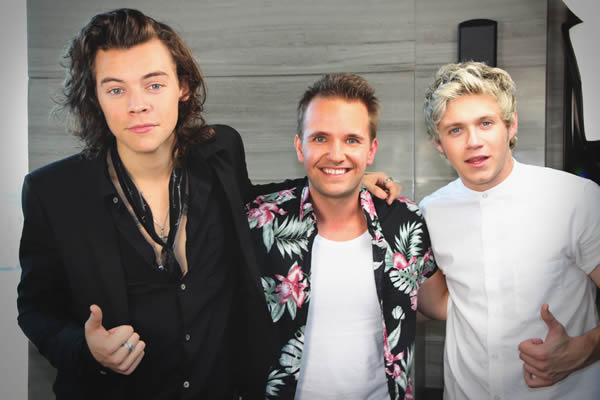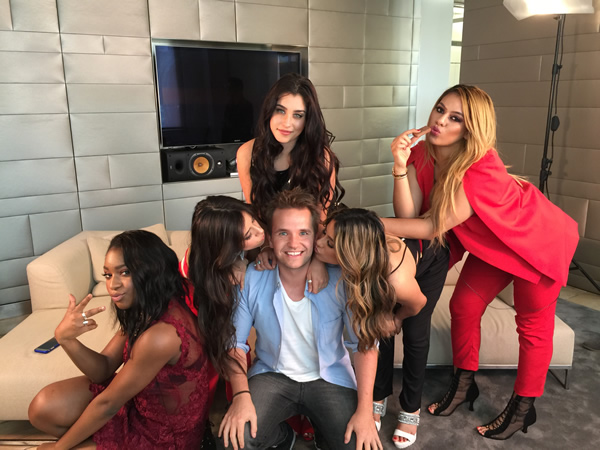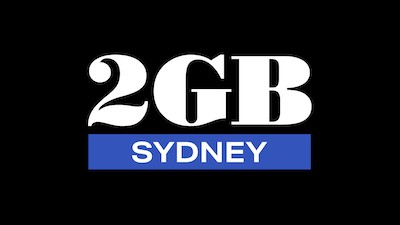The Surgery is Open: This is Kent Small

Kent Smallzy Small, is the guy behind Nova Entertainment’s Smallzy’s Surgery.
The last survey again had the show number 1 nationwide in every capital city.
We talk about his career, what happened when he was fired, who have been his mentors, what goes into the show, especially when on the road overseas and is there life after the Surgery?
Blair Sullivan: So how long have you been doing the Surgery for now?
Kent Small: The show’s been on air for three years. We started end of January 2012, start of survey actually.
Blair: Isn’t it funny, I actually thought it was longer than that.
Kent: It feels like it’s been longer because the stuff I look back on, I thought that happened ages ago, and in the same breath it feels like it has been a very short run. Like I kind of feel like I don’t want the show to jump the hurdle and get into its middle age stage of its life blood if you know what I mean, because I’m sure other shows and any big brands around the world have probably gone through their beginning, middle and end, the decline, and I don’t want to feel like I’ve hit that middle yet.
I still want to feel I’m in that beginning stage, I still want to feel like forget everything that’s achieved, I still feel like the underdog, even three years in. I still want to feel like every day I come to work I’m the underdog.

Blair: Where did the surgery name come from?
Kent: Well that’s Paul Jackson, and if you have a look through history and archives of the show actually, and I didn’t know this at the time, but I’ve gone and since learnt his dad used to call himself The Doctor and there’s a whole….
Blair: Yes, I think I read that.
Kent: Yes, and there used to be another guy in the UK, Dr Fox’s Midnight Surgery, which is a late night show and they were all really like, in the UK, tastemaker shows in pop radio.
Blair: Now that you say that, I remember it now.
Kent: Yep, and I think that’s where the name comes from. I’m just lucky that my name was Smallzy.
Blair: And it sort of flows.
Kent: And the alliteration works, cause I’m a big fan of alliteration.
Blair: So in terms of the content of the show… who’s involved in the team?
Kent: Well there’s myself, the EP Zach La Cava and our new Assistant Producer Alice Worthy. There is the three of us basically every day, that break down the content. It’s not a traditional show in the sense that Oh, we’ve got the PD’s involved and there’s an Assistant Programmer looking over everything, we’re kind of very lucky to have the ability to work freely and the autonomy to just do what we want to do.
Blair: Yeah?
Kent: Yeah, absolutely. Again, I mean it wasn’t like that at the start, but I pride myself on the show’s consistency in what it’s delivered so I think with that comes a little bit of freedom. And I think that in knowing full well that everyone who’s in charge knows that you’re not talking to 19/20 year old me who might probably have had the freedom to just go and do anything and just have a crack and not actually balance up and take on many lessons that I’ve learnt many of the times. You only have to be fired a couple of times in jobs to go “OK..yep, no I…”
Blair: It sinks in.
Kent: Well, not even that it sinks in for any one reason, but you’re acutely aware that this is not guaranteed and this is not forever.
Blair: So have you actually been fired before?
Kent: Sure have, yeah sure have.
Blair: Where did that happen?
Kent: Ah, well I kind of feel like every time, whenever you’ve been fired, it’s an opportunity to just prove people wrong or just go wallow in self-pity and say “woe is me”. I’ve never been physically told “see you later, don’t come back”, but I have just not had my contract renewed.
So I think when I was maybe 20 I was fresh out on the Central Coast, the radio station was shifting older and I didn’t have my contract renewed however I never left, I still stayed on. They just put me onto an open agreement and I then moved to Brisbane Nova, came to Sydney back in 2009 and then had a very short-lived stint doing the National Night Show with a couple of other people and the chemistry just wasn’t right, which I think for anyone involved at that time was a lesson. You don’t put people together unless you’ve tested them. And if you don’t test people together you don’t know what a show’s going to sound like. And we basically just got told thanks but no thanks.
Blair: So you came out of AFTRS…
Kent: Sure did. I feel like from back in those days I always wanted it, you had that drive to want to be hyper successful. It’s interesting how this industry sometimes doesn’t, you can come into different businesses and you find people who don’t think you are very good and can inhibit your growth, and I guess the test is if you can work past those people and around those speed humps and pot holes and persevere through. So I like to think sometimes if I’m sitting alone in my house, I did alright, I did alright.
Blair: Who were some of the influences in your career, mentors?
Kent: The word mentor, I don’t know if radio, or my experience at least of radio presenting, it’s an inherently paranoid job where people don’t like to push other people through. That’s the experience I’ve had when I was coming through. People would take you under their wing, but only so far under their wing because everyone is consciously aware that that next person there could be taking your job one day right?
Blair: Yeah.
Kent: So for me, in the early days I would have said a guy called Andy Grace would have been someone I would have viewed as a mentor. Someone who I would look at and watch and see how he handled himself through situations. Then I would say after he went his way and my career started going, we didn’t really talk very often, I would say I had no real mentor and I would probably look at my career progression through that time and I didn’t really know what I was doing or where I was going or what I wanted.
And now, as cheesy as it sounds I would say Paul Jackson is not only my boss but a mentor. And there’s some key stakeholders and people overseas in other markets that I would bounce things off and talk to about career progression and you know, just take their vibe on it and see what they have to say.
Blair: Have you had any advice from anybody that sort of stands out?
Kent: I think it’s a bit cliché but I think ‘authentic’ is something that I think in any creative industry is the one piece of advice that shows up. If you’re a singer, if you’re a performer, if you’re on radio, if you’re on television, it’s just finding your authentic self and living that and being that.
Because when you want something it can be very easy in your early days to just go Oh my God, whoever, let’s use Kyle Sandilands as an example, you come into radio and you want to be very successful like Kyle Sandilands, it’s very easy to fall into the trap of going OK, well he’s opinionated and he tells people off, so let me also be opinionated and tell people off because…
Blair: A clone?
Kent: A clone you know, and, you know what? It’s not really going to get you very far. It can get you a little way don’t get me wrong, if you are good at being a clone it will get you half way down the track but you’re probably going to reach a ceiling very quickly very early on.
But if you’re not your authentic self, you’re not going to probably see the highs that you would want to see and have. So any new players, as cliché as it is, be true to yourself and know when to fight for your truth and to know when to go you know what, this is part of the battle I don’t need to win, but in the war I will be victorious.
There’s a difference between hearing it and actually listening to it because there’s a big different mind psyche I think for people who hear and go yeah I want to be myself and then the next minute they talk and you can hear that they want to clone or want to emulate someone else. Because they hear it, but they don’t listen to the actual intent of the message.

Blair: Safe to say you’ve interviewed a shit load of people in the last three years.
Kent: Yeah, I think Zach and I did a bit of a recky last year, we did like 240 interviews last year. 240 prep sheets, 240 meetings about frickin ideas, 240 phone calls, guests through the reception, show openers.
Blair: So every time you get one of those guests in you sort of map out what you are going to try and do differently with them, like a point of difference, not just the normal.
Kent: Absolutely, I’ve never just liked to do an interview for interview’s sake. You want something that’s quotable, that’s re-playable, you want something that’s engaging to people who are consuming radio on the other end.
And in the business that we work in, I don’t believe talking about who produced your record is engaging. I don’t think people care, because I can’t remember the last time I had a conversation with any of my friends….
Blair: Well you can’t even read who produces….
Kent: Well, you don’t even have digital books anymore right. You just download the song on iTunes and you go this is an amazing song, what’s the story? Awesome, now let’s try something at your head for a visual gag entertainment wise, you know what I mean? But there’s also, on the flip side there are artists that I will sit down and go, you know what, I think this is an artist that’s had pivotal moments occur in their lives, deaths, births, whatever, and that songs about that and you pay that the respect to actually connect on that level and you don’t need to have some gimmicky stunt to do with that interview because the merit is the story and our job is to tell that story.
Blair: Can you narrow down a couple of favourites?
Kent: For me the favourites are the ones that you get press out of, that do like 2 million clicks on YouTube in views and watches, and things that you know, as Kim Kardashian would say, would break the internet you know what I mean.
So you know, 5 Seconds of Summer stuff where we do just fun content with those guys like it might be a yes/no game where we ask them engaging questions and they basically answer it and the fans lap it up and they love it. And that’s an example of where we do a radio chat and we also look for some social and some online portion too that we don’t play on the radio, because it’s not again audio-wise people flickin paddles, you can’t hear that, it doesn’t make sense. So we do a two prong approach.
Blair: You’re looking for the up-side with the social media?
Kent: Of course, you know we have to. We work in an environment where there are KPI’s on digital and we have to transcend and our brand has to cross over from radio to online and we are blessed to have the facilities and the people who work in this business to help us get there and the job’s on us to use them and make sure we take advantage.
Blair: Who stands out as a shocker?
Kent: Interview wise?
Blair: Yeah.
Kent: Oh, I don’t kiss and tell, but I will tell you that the ones with attitudes, the ones that walk in with entitlement, a sense of entitlement like “Oh, you should be playing my song and I shouldn’t have to be doing this promo to play the song.” It’s the ones that forget we’re all in this together, the ones that forget that you’re here to do your job, but I’m also here to do my job.
Yeah, there’s highs and lows with a lot of them, and I think to be fair that the ones that you have run-ins with over time are the same ones that have run-ins with other people, and on television, and run-ins here and run-ins there.
Blair: The Global Red Room Tour that’s about to kick off. So you’re about to head off aren’t you?
Kent: On a jet plane, it’s going to be so much fun. I mean I’m sorry, it’s going to be so much hard work…..and fun! It’s awesome that we have a creative team and a part of the business that embraces these experiential listener events that are so out of the ball park from what anyone else is offering, and I get to be part of it.
You know, it is never lost on me that I get to fly around the world and interview artists in some places, you know I was not doing this three or four years ago and I remind myself of that, that these are the moments that you will look back on in your career and go My God, that was so great. And you want to embrace and be in the present and in the moment all the time for it.

Blair: So how long will you be on the road for?
Kent: Ten days, four cities including Sydney on the return leg on the day we get home.
Blair: You’ll be stuffed.
Kent: Yeah, oh yeah. I should say that people mightn’t look at what the show does, so this year we have been overseas for the Grammys, we were overseas in London for the Summertime Ball and then we just recently got back from LA a couple of weeks ago after covering the E3 Gaming Conference, and I think that some people on the surface might go “This is a rort, this guy’s just travelling the world and living it up.” And it’s a lot of hard work. And there’s nothing glamorous about working in two time zones because you’ve got people who are here working to this time zone, you’re capturing content in their time zone, and in-between it all you’ve got to piece it together and do a show. And it’s exhausting, it is exhausting.
And that’s not to say woe is me and Oh My God I don’t ever want to do this again, these are once in a lifetime opportunities, but with this comes a lot of hard work. I mean to put a show in the can for ten days while we are away, two days in every city while we’re on ground, hosting events, attending functions, entertaining listeners, there’s not many hours left in a day to be sending that show back plus interviews. And we’re very self-sufficient on the road so we’ll record the stuff, I’ll edit it and send it back and they’ll piece it together here in Sydney. So it’s a lot of manually handling things while we’re driving.
Blair: So three or so years now doing Nights. What’s after that, what’s next?
Kent: It’s interesting that you ask that question because I had that same question pop through my head the other day and going through this business, and I’m not by any imagination a stalwart of the industry, I’ve just done it since 19 and I’ve always felt in this business you’re always saying what’s next? You’re always like I’ve got this job, now what?
You’re always looking for the next job, you’re always sending out your tape trying to get that next job and very rarely do we just stop in the moment and take stock and appreciate where we are. You hear stories all the time about Oh my God, I wish I just enjoyed that one time when I was on the Central Coast that I could get away with anything that I wanted but I was too focussed on trying to get out, too focussed on that next career move. For me, whatever happens next will be right when it appears.
I know that now for me I don’t want to be doing anything else. I love this, I love the show that I do, the show’s successful, the show’s hard work but I’ve got a great team of people around me and I don’t want to wish that away on trying to get that next job. You know what I mean?
Because then what? If we wish away the job that we have for the next one, what happens when you’re the King Pin of Sydney Breakfast Radio, you’re gonna get to that finish line and then you’re gonna go Oh, I never appreciated anything along the line. You’ve got your 10 Million Dollar pay cheque, but now what? You’ve got this hole and that’s just depressing.
What a great job I’ve got, I’ve got a great job, honestly I’ve got a great job and why would I want to wish that away? Why would I want the next opportunity?


